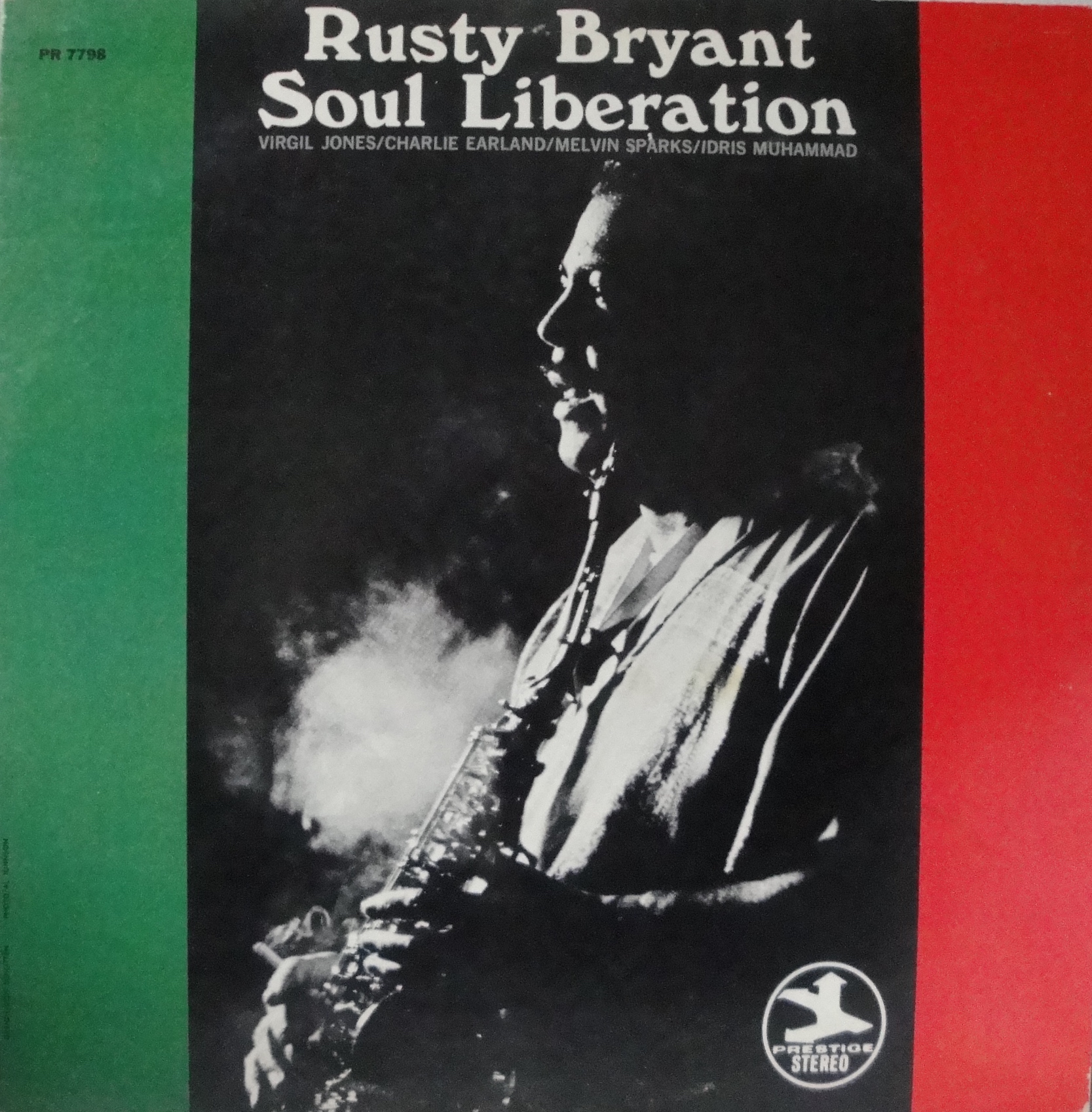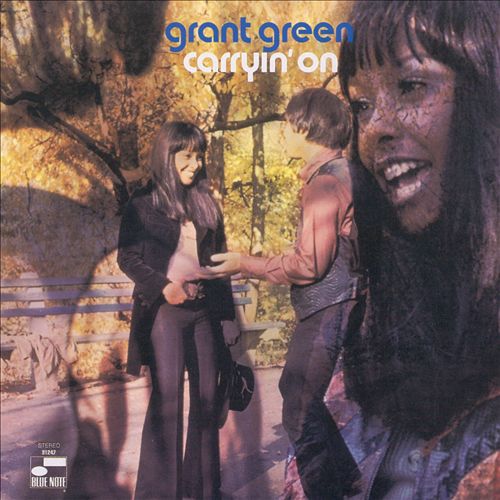Rusty Bryant was the kind of big-toned saxophonist that switched easily between r&b and jazz. In the late sixties Bryant recorded in the funk jazz vein. With Soul Liberation Rusty Bryant arguably delivered the grooviest funk jazz set of his career.
Personnel
Rusty Bryant (tenor saxophone), Virgil Jones (trumpet), Charles Earland (organ), Melvin Sparks (guitar), Idris Muhammad (drums)
Recorded
on June 15, 1970 at Van Gelder Studio, Englewood Cliffs, New Jersey
Released
as PR 7798 in 1970
Track listing
Side A:
Cold Duck Time
The Ballad Of Oren-Bliss
Lou-Lou
Side B:
Soul Liberation
Freeze-Dried Soul
As the title track demonstrates, from the first lines Bryant grabs you by the throat and thence builds a heated solo, inspired by an equally fiery line-up. There’s Idris Muhammad. The steamroller! The funky wizard! The eloquent groovemaster! Competent in many facets of jazz, of course Muhammad is admired mostly for his groundbreaking soul jazz grooves. On this album Muhammad’s trademark press rolls ‘on the one’ are plentiful.
At the time, Muhammad mostly played with Lou Donaldson. Other Donaldson alumni are Earland and Sparks. Furthermore, all four sidemen played on Charles Earland’s masterful Black Talk. Thus they have some experience playing together and would continue to play on other recordings the following year. Charles Earland is a great organist but often demonstrates an unnerving form of bombast in this session, wasting powder and shot and leaving us wondering which solo climax is next. Yet the heavy ground beef he delivers for Rusty Bryant’s Big Wopper is wholly satisfactory.
Virgil Jones is an exciting trumpet player who shows an appetite for the exuberant blowing of Lee Morgan and Freddie Hubbard. Melvin Sparks’ gritty, r&b-influenced play, at times echo-reverberating quirkily, is also an asset for a party record such as Soul Liberation; to boot, in Lou-Lou – a Charles Earland original dedicated to Lou Donaldson – the second part of Spark’s straightforward, bluesy solo is preceded by whimsical, spiraling, Oriental turns. Very charming.
Rusty Bryant sets the pace with Eddie Harris’ Cold Duck Time, shouting brusquely and throwing in some flashy bop phrases as well. Apart from the impeccable Ballad Of Oren Bliss Bryant continues to blow hard. Try putting on this album during your bi-annual house party. It’ll simultanuously prompt people to tip-toe to your linoleum dance floor and have their ears perked up well enough to notice whoever on Soul Liberation is currently cookin’.



